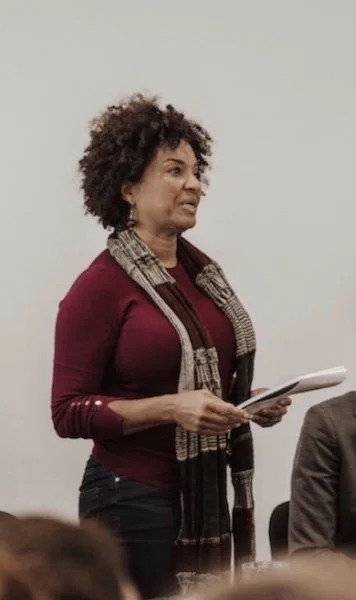Embrace Your Fear. Don't Freeze It!
I believe fear must have been the first emotion that I have learnt to master. Growing up I feared many things. The first ever fear that I consciously remember experiencing was fear of taking the lift. I was stuck in a lift once as a child and found the experience extremely frightening and distressing. I refused to go into a lift after that and always took the stairs no matter how high I needed to go. It kept me fit but I hated the feeling of being afraid. At some point in my early teens I started to challenge myself and go in the lift for a short distance, a kind of exposure self-therapy and in time I managed to overcome it.
The next fear on my list was fear of the deep. I was afraid of swimming at the deep end of a swimming pool or in the deep end in the sea. An incident when I was a teenager of jumping into the deep end of a pool by mistake and nearly drowning did not help matters. Movies about sharks that were popular in the eighties fuelled my imagination and only served to make this fear grow. My fear of the deep comes and goes depending on my level of exposure.
Next was my fear of flying which is now a thing of the past. Neuro-Linguistic Programming concepts really helped me to overcome this particular fear because I became aware of the pictures and movies I was creating in my head that were contributing to my fear. Once I played around with those images my fear diminished considerably. Also reading and gathering knowledge about aviation risks helped me also realise the absurdity of that particular fear.
However my biggest fear to date I would say was or is fear of public speaking. So how have I learnt to manage this fear and speak in public?
Fear, like sadness, anger and joy is an important emotion. It signals danger and propels us to take action towards safety. However in some cases it can be experienced out of context and out of proportion to the situation. That is when it is important to delve into it and start exploring it.
“Most of us experience fear as a kind of stop sign or flashing red light that warns: “Danger! Do not enter!” But we may need to decide that signal and consider what it’s trying to convey. What is the actual nature of the danger? Is it past or present, real or imagined? Are we feeling anxious because we are boldly charting new territory, or because we’re about to do something stupid?”
- Harriet Learner, Ph.D., The Dance Of Fear
Fear is a misunderstood emotion. Experiencing fear is unpleasant and so we rush to block it, suppress it, ignore it or avoid the situations that cause it to arise in us. In the right context it is important to take measures for safety, however when it is out of context then we need to pay more attention to fear instead of blocking or ignoring it. That is because fear carries important messages about our past experiences and clues to understanding our behaviours in the present.
Dr Pippa Grange writes that there are two types of fear: the one that is appropriate in the right context of a crisis which she calls in-the-moment fear, and the other type of fear that is out of sync with the situation and rules our lives, affects our choices and leaves us unfulfilled. She refers to this type as the not-good-enough fear. She echoes what Harriet Lerner wrote and adds that the not-good-enough fear is mixed up with what happened in the past and what might happen in the future. Something that was true with my fear of public speaking.
I realised I had a fear of public speaking in my early twenties when I started university in the UK. Not only did I discover that I was terrified to stand in front of an audience and speak, I was also ashamed about having such a fear and so did not want anyone to know about it. This added to my stress as it meant that in addition to fear of public speaking, I was afraid of being exposed as having fear of public speaking. I believed that I would be laughed at and ridiculed if others found out. It meant that every time I needed to stand up and speak before an audience I was using lots of energy to block and also disguise my fear. I can tell you that it was exhausting and left me drained and unable to enjoy the experience.
My way of managing this fear at first was to avoid speaking in public. However there were times when I couldn’t avoid it as my grades depended on it. In those situations I suffered tremendously before, during and after the event.
Yet at the same time I wanted to share important thoughts and ideas with people. I felt often that I had meaningful things to talk about that can make a positive difference in people’s lives and perhaps offer them clarity or alleviate their pain. This drove me to explore more deeply my fear by first allowing myself to be exposed to it, which meant doing the very thing I feared doing, stand in front of an audience and speak through joining clubs like Toastmasters of The Hague.
More recently during my Transactional Analysis studies I explored further my fear using the tools and concepts the course offered and also during therapy and supervision. The most transforming thing that I learnt on this emotional journey was to withstand the discomfort that engulfed my being when I experienced the fear. To sit with the fear for a bit and listen to what was happening in my body and to the possible messages and information that this fear was trying to convey.
I discovered that my fear was associated with childhood traumas. The fear of public speaking was a disguise to a bigger fear. Fear of being abandoned, unloved and rejected. Fear of being shamed and humiliated. Although my mind could not pinpoint specific events, my body somehow remembered and kept the score. So whenever I was in a situation that put me at the centre of attention, like speaking in public, my body reacted and signalled to me that I was in danger. Gaining that self-awareness was extremely helpful in managing my fear. I realised that my fear was a thing from the past and did not belong to the present moment. I felt gratitude and compassion towards my body and it’s attempts to protect me from what it perceived as dangerous due to past traumatic experiences. I realised that the present is different and that I am no longer facing that danger. Furthermore it is okay to be afraid sometimes. There is no shame in that and no need to hide this fact. In fact in the first speech I gave at Toastmasters I started my talk by acknowledging my fear and anxiety. This resonated with many people who later came and shared their own fears with me. These insights were also helpful in my work as a coach and counsellor as many of my clients also struggle with fears and anxieties.
Have I stopped being afraid of public speaking? No. However nowadays it no longer silences my authentic voice. It no longer stops me from acting with compassion and courage. By embracing my fear I was able to manage it better.
Dr Pippa Grange, a sports psychologist, writes in her book, Fear Less, that facing our fears is a kind of growing up and is about shedding our parents’, generational and social fears. She adds that facing our fears will free us to explore our true ambitions and allow us to look at the world with a new perspective.
“The best thing we can do with fear is to befriend it. That is, we can learn to expect, allow, and accept fear, observe it, watch it rise and fall, attend to how it feels in the body, watch it mindfully, and understand that fear will always reappear. Fear is a physiological process that cavorts and careens through our bodies and makes us miserable. Eventually it subsides — only, of course to return. The real culprits are our knee-jerk responses to fear, and the ways we try to avoid fear, anxiety, and shame.”
- Harriet Lerner, Ph.D., The Dance Of Fear
I invite you to also embrace your fear rather than freeze it. Learn to sit with the discomfort for a bit and find out what you can learn. Perhaps you might find that befriending your fear yields better results than avoiding it.

